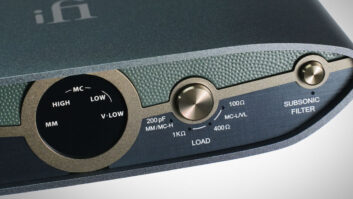New York – In their comments to the Federal Communications Commission (FCC),
carriers AT&T, Sprint, T-Mobile, and Verizon Wireless joined BlackBerry maker
Research In Motion in calling exclusives beneficial to the market.
The carriers also
contend the FCC has no legal authority to ban exclusive contracts, which are
also endorsed by the Telecommunications Industry Association (TIA). TIA’s members
include handset vendors.
Carriers and RIM
cite these benefits:
·
Exclusive
deals provide incentives to carriers and vendors so they will invest jointly in
developing innovative devices. Carriers contribute to the development costs of exclusive
handsets and will be less likely to do so if their competitors get the handset
at the same time that they do. At the same time, exclusives encourage vendors
to develop sophisticated handsets because vendors reduce their development
expenses and get assurances that the device will be promoted heavily. Without
exclusive contracts, “manufacturers might well invest much more conservatively,
focusing exclusively on incremental advances that are much less costly to
engineer, and therefore present less risk, but fail to maximize consumer
benefits,” RIM said.
·
Prices
of select handsets could go up. Exclusivity arrangements usually include volume
commitments and guaranteed promotion levels by carriers, helping vendors gain economies
of scale and savings -that can be passed onto consumers.
·
Exclusive
phones have enhanced competition. The exclusive launch of the iPhone on the
AT&T network provided incentives to Sprint to launch the exclusive touchscreen
Instinct and Verizon to launch the exclusive touchscreen BlackBerry Storm. In
fact, the U.S.
leads the world in the number of available touchscreen phones and
QWERTY-keyboard phones because of carrier demand, carriers said.
·
U.S.
CDMA carriers need to incentivize vendors to build iconic phones for their
wireless standard. Otherwise, handset vendors will focus on developing
cutting-edge models for the GSM standard, which dominates the world. The sale
of the BlackBerry Storm exclusively through Verizon marked the first time that
a CDMA BlackBerry hit the market before a GSM version, TBR analyst Ken Hyers
told TWICE. The volume guaranteed by an exclusive CDMA handset deal will also
generate economies of scale that could make their pricing more competitive with
GSM models.
·
Exclusivity
contracts help small handset makers innovate. These vendors might not be able
to launch a major innovation effort without the assistance of major carriers,
T-Mobile said.
Also in their
defense, large carriers and handset vendors point out that:
·
Periods
of exclusivity aren’t that long. Exclusivity periods last anywhere from 90 days
to 12 months, but they typically end after only six months. One exception is
the iPhone, launched in 2007 with “multi-year” exclusivity on the AT&T
network, AT&T announced at the time.
·
Small
carriers benefit from larger carrier’s investments in developing exclusive
handsets. In the “vast majority” of cases, T-Mobile said, small carriers “obtain
access to new handsets either immediately or, at worst, after a relatively
short period of just a few months.”
·
Exclusive
contracts seed the market with AWS-band handsets. Small carriers don’t have the
customer base or resources to motivate a supplier to build phones for the AWS
band, but AWS-band carrier T-Mobile does.
·
Small
carriers could combine their buying power to win their own exclusives. Tier 2
and 3 carriers did that in 2005 to bring one of the first music phones to
market, and they could do it again, T-Mobile said.
·
Small
carriers and MVNOs, not just the big four carriers, sell exclusive handsets.
The MVNO handsets are customized “to meet the needs of their customers and to
reflect their distinctive brands,” T-Mobile said.
·
The
handset market has grown increasingly competitive. Today, more than 40
companies market more than 620 wireless devices in America, T-Mobile said.
·
Rural
carriers have plenty of choices. They offer more than two hundred different
handsets, including many with touchscreens, Bluetooth, Wi-Fi
and Internet browsers, said AT&T.
·
Rural
carriers just want government protection from competition. “The petition and
its supporting comments are unabashed pleas for a narrow protectionism that
would interfere with functioning markets merely to provide highly dubious
short-term benefits to a few carriers,” AT&T’s comments said.
For their part, TBR
analyst Ken Hyers of TBR and Precursor Group analyst Scott Cleland
dismiss the rural carriers’ complaints. Hyers asked, “Will a car dealer in
rural Alabama
get the first new Porsches? It’s not going to happen because the market isn’t
large enough.” Similarly, rural carriers don’t have a large enough customer
base to get the first whack at a new products, he said.
Said Cleland,
“No wireless carrier that wants to stay in business will commit to and execute
a big, expensive national ongoing marketing/advertising campaign to sell a
high-end smartphone if every one of their competitors could sell the latest
smartphone at the same time and profit off the expensive marketing/advertising
campaign as free riders.”
“The standard and legitimate marketing practice of marketing
exclusives,” Cleland continued, “results in vastly more combined – manufacturer
and carrier/distributor – marketing resources (hundreds of millions of dollars
in advertising annually) to drive more sales and growth in this segment than
the manufacturers could afford to do by themselves.”









